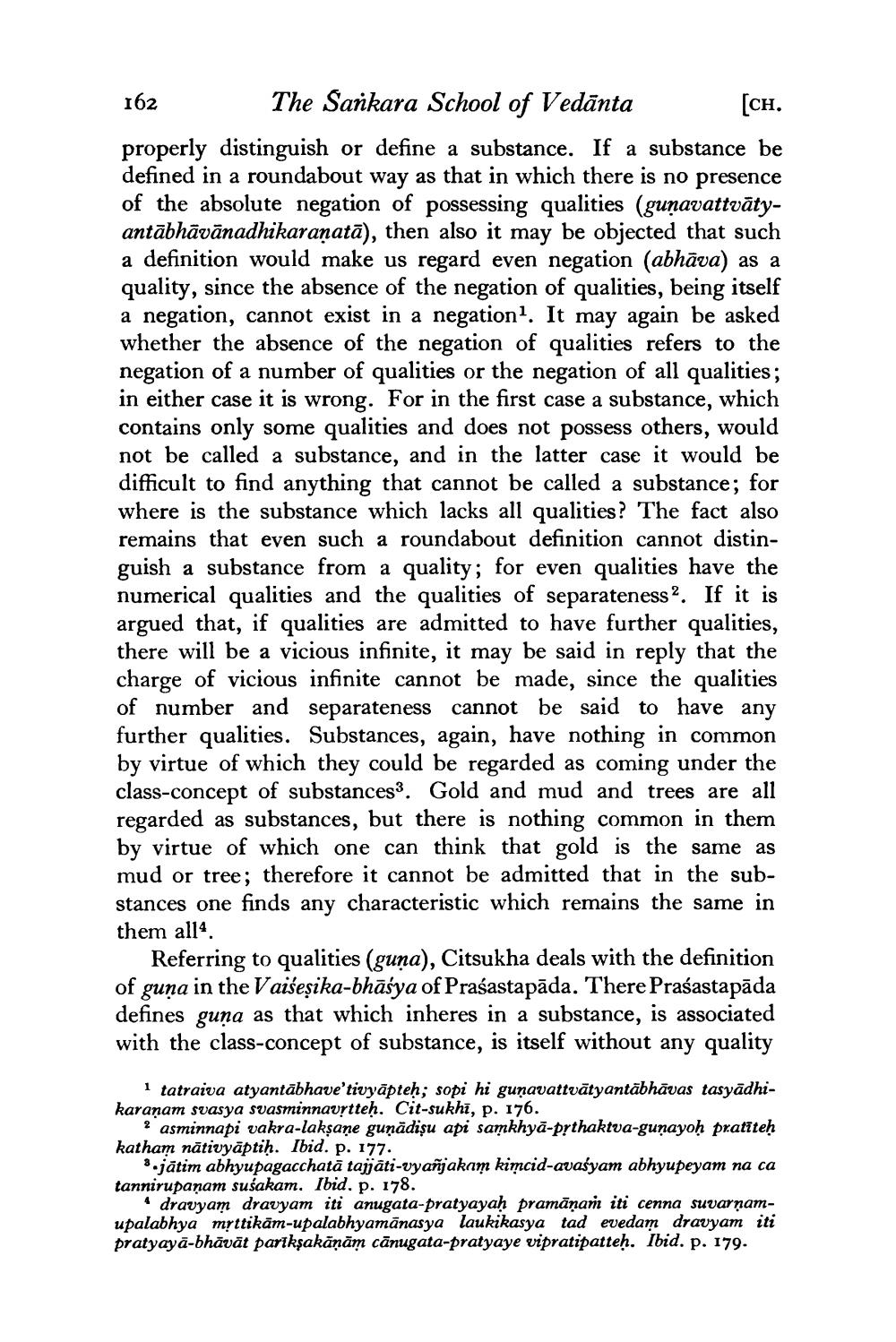________________
162
The Sankara School of Vedānta [ch. properly distinguish or define a substance. If a substance be defined in a roundabout way as that in which there is no presence of the absolute negation of possessing qualities (gunavattvātyantābhāvānadhikaraṇatā), then also it may be objected that such a definition would make us regard even negation (abhāva) as a quality, since the absence of the negation of qualities, being itself a negation, cannot exist in a negation?. It may again be asked whether the absence of the negation of qualities refers to the negation of a number of qualities or the negation of all qualities; in either case it is wrong. For in the first case a substance, which contains only some qualities and does not possess others, would not be called a substance, and in the latter case it would be difficult to find anything that cannot be called a substance; for where is the substance which lacks all qualities? The fact also remains that even such a roundabout definition cannot distinguish a substance from a quality; for even qualities have the numerical qualities and the qualities of separateness. If it is argued that, if qualities are admitted to have further qualities, there will be a vicious infinite, it may be said in reply that the charge of vicious infinite cannot be made, since the qualities of number and separateness cannot be said to have any further qualities. Substances, again, have nothing in common by virtue of which they could be regarded as coming under the class-concept of substances. Gold and mud and trees are all regarded as substances, but there is nothing common in them by virtue of which one can think that gold is the same as mud or tree; therefore it cannot be admitted that in the substances one finds any characteristic which remains the same in them all4.
Referring to qualities (guna), Citsukha deals with the definition of guna in the Vaišeșika-bhāśya of Prasastapāda. There Prasastapāda defines guņa as that which inheres in a substance, is associated with the class-concept of substance, is itself without any quality
1 tatraiva atyantābhave'tivyāpteh; sopi hi gunavattvātyantābhāvas tasyādhikaranam svasya svasminnavrtteh. Cit-sukhi, p. 176.
2 asminnapi vakra-laksane guņādişu api samkhyā-prthaktva-gunayoḥ pratiteh katham nātivyāptih. Ibid. p. 177.
3. jātim abhyupagacchatā tajjāti-vyañjakam kimcid-avasyam abhyupeyam na ca tannirupaņam sušakam. Ibid. p. 178.
odravyam dravyam iti anugata-pratyayaḥ pramāņaṁ iti cenna suvarnamupalabhya mặttikām-upalabhyamānasya laukikasya tad evedam dravyam iti pratyayā-bhāvāt pariksakāņām cānugata-pratyaye vipratipatteḥ. Ibid. p. 179.




